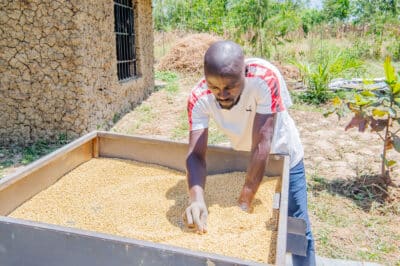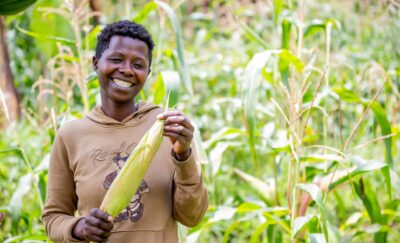Stories
Kenya
16 July 2025
How biochar improves agricultural yields and saves farmers money
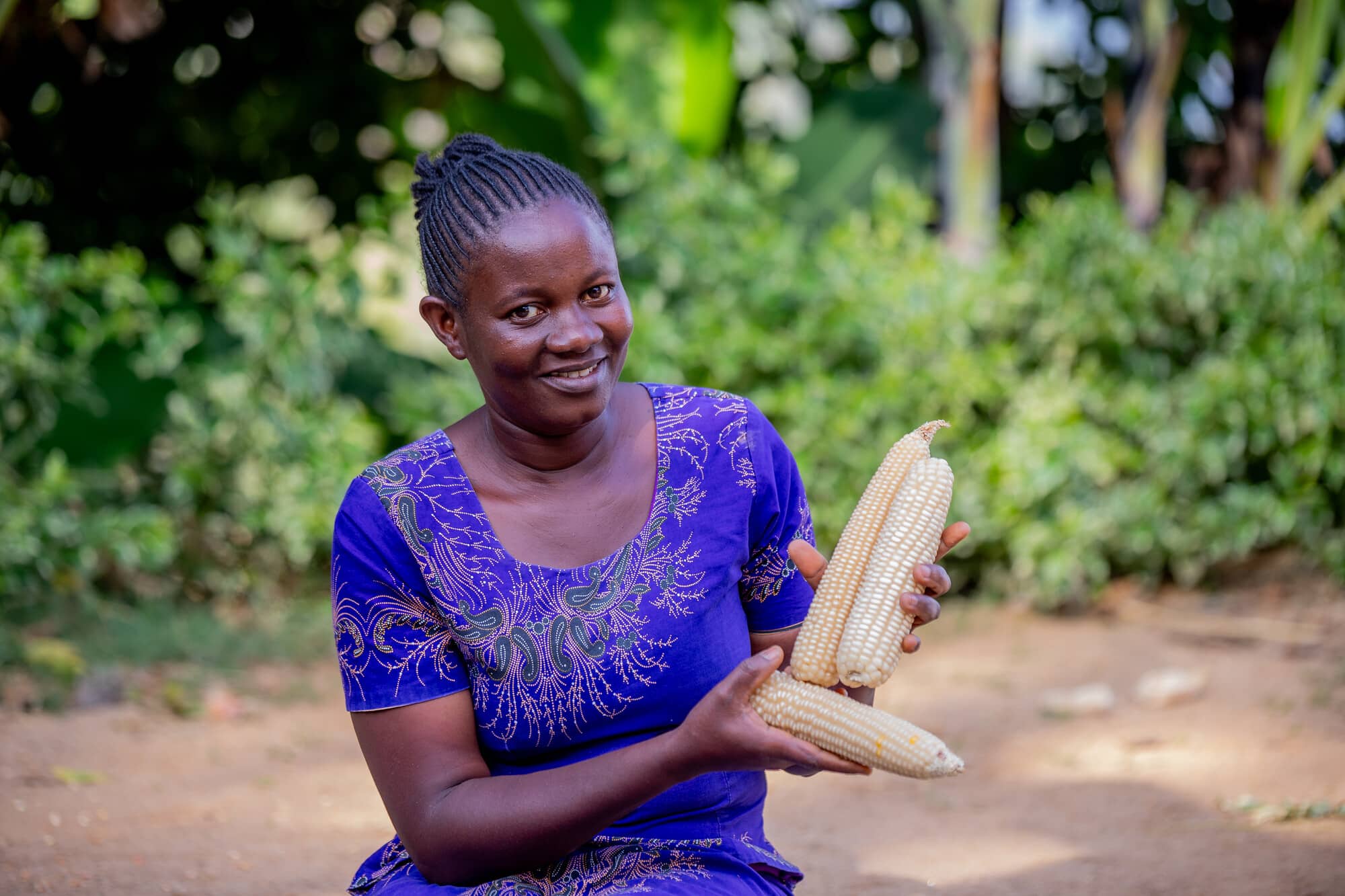
Philister Mkanjala, a mother of one from Taita Taveta County, Kenya, has transformed her farming practices with the help of a biochar project by the Danish International Development Agency (DANIDA), in partnership with Farm Africa.
Farming on just half an acre of land, Philister grows maize, beans, cassava, bananas, macadamia and avocado. Over the last year, the biochar project trained Philister in sustainable farming practices, record-keeping and how to use biochar to enhance her yields. Biochar is a charcoal-like material that promotes environmental conservation and enhances agricultural productivity.
Before the project, Philister struggled with soil moisture retention, especially during dry spells. “Initially, before using biochar, we used cow dung waste as manure, but we didn’t harvest much produce. During the dry season, the manure wouldn’t retain moisture and the crops struggled,” she recalls.
However, after integrating biochar, made from coconut and macadamia nut waste, into her farming practices, everything changed.
“Biochar has helped me retain moisture in the soil, so even when the rains are not there, the soil remains moisturised and my crops thrive.”
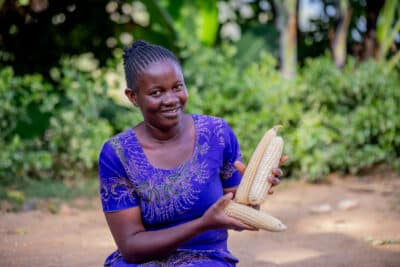
Philister Mkanjala
Smallholder farmer
Philister’s training has enabled her to apply biochar in the correct proportions. “We were trained on how to measure biochar and organic manure and we use a ratio of 2:2” she says.
By experimenting with different combinations, Philister observed the significant impact of biochar on her maize crops. “I used biochar, organic manure, fertiliser and some areas without any inputs to compare the results. The farm with biochar showed better growth, and I harvested more,” she explains.
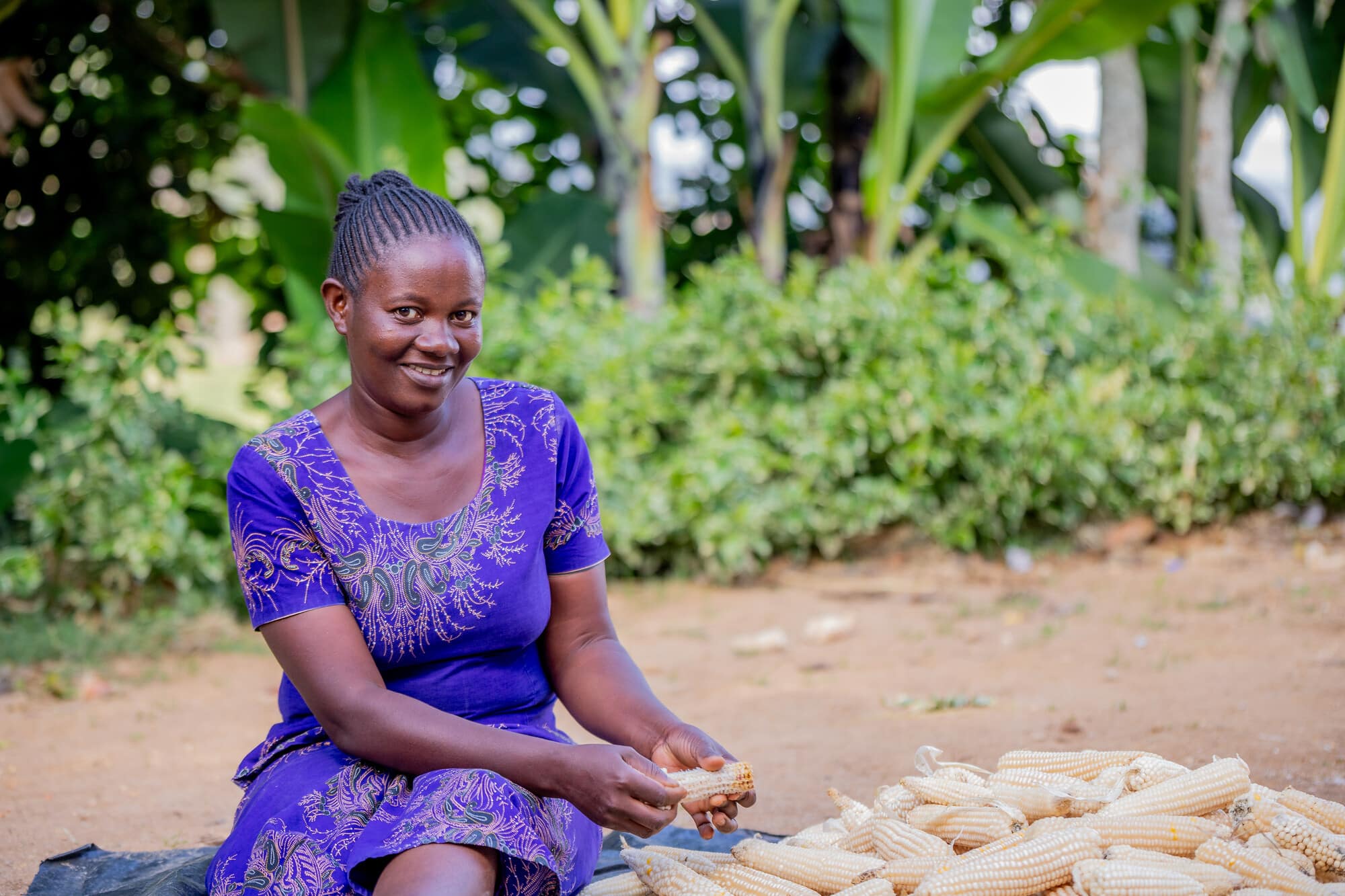
Philister surrounded by maize harvested from her biochar farm.
In her first season, Philister harvested 159 kg of maize with the following breakdown: 48 kg from the farm with biochar, 60 kg from the farm with organic manure and biochar, 36 kg from the farm with fertiliser and just 15 kg from the farm without biochar, manure or fertiliser. “The harvest was bumpy on the section with biochar. Biochar helps retain the moisture, which makes a huge difference during the dry season,” she adds.
60kg
Philister harvested 60kg of maize from the farm with organic manure and biochar.
The biochar not only improved the soil quality but also saved Philister money. Prior to using biochar, she had to purchase organic manure costing 3,000 Kenyan shillings (KES), which added up over time. “The good thing about biochar is that you can use it in several seasons, unlike manure which is only used in one. Therefore, it saves on money. I hope it will be cheaper than organic manure, especially since my neighbours are also interested in using it,” she says.
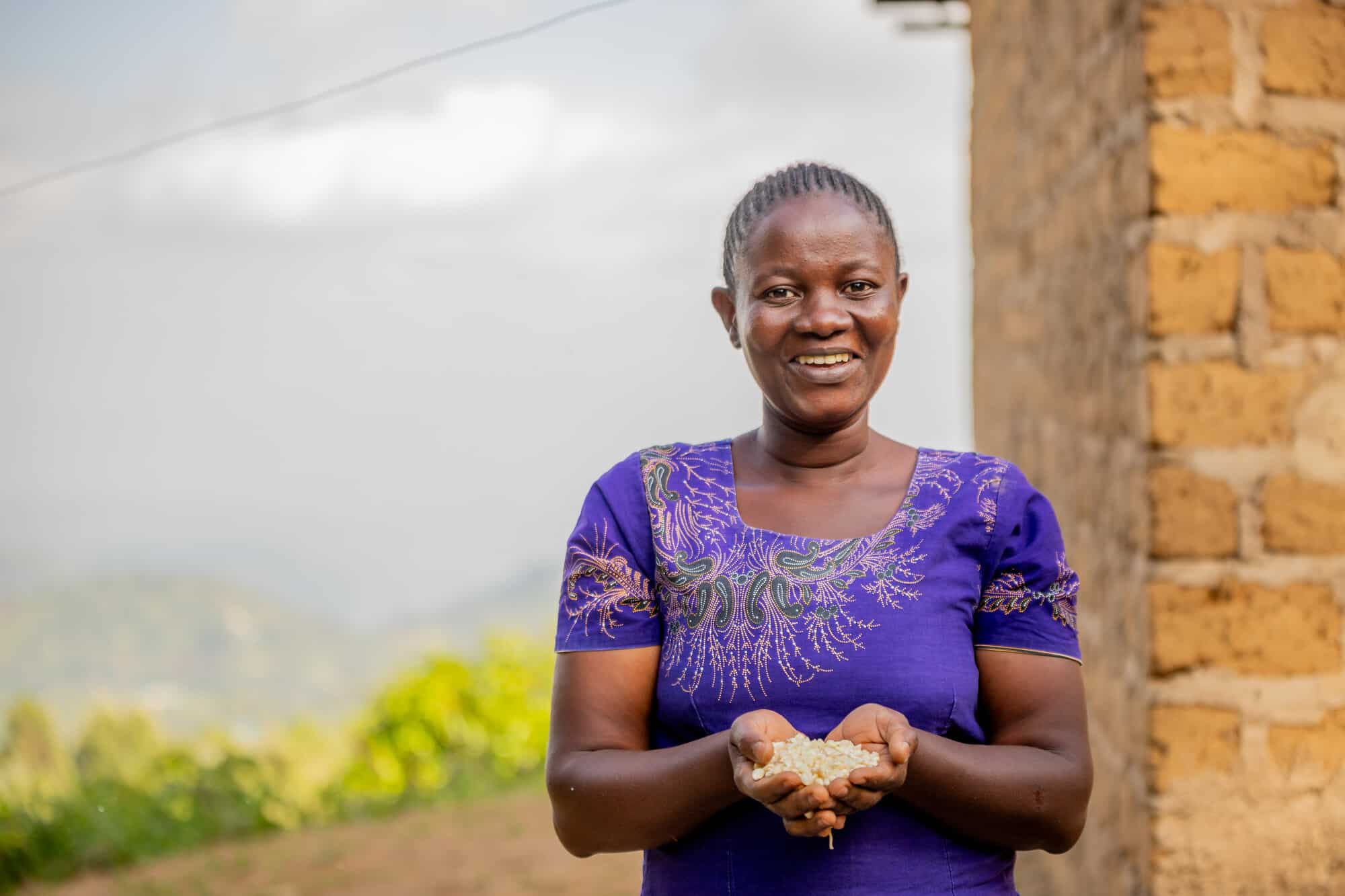
Philister holding macadamia nuts harvested from her biochar farm.
Philister now recommends the technique to other farmers in her community, encouraging them to use biochar as a sustainable and effective alternative to traditional farming methods. “I would recommend other farmers to use biochar because it does not have chemicals, and it helps the crops grow better,” she advises.
Additionally, she has adopted a new way of planting, preferring to make lines in the soil instead of tilling. “Farming with lines is better than digging because it doesn’t require as much manure and it’s easier to manage,” she explains.
Philister’s story demonstrates how small-scale farmers can improve their yields, save money and adopt more sustainable practices that protect both their crops and the environment.
Photos: Farm Africa / Bertha Lutome
